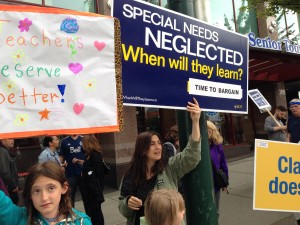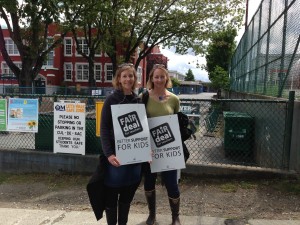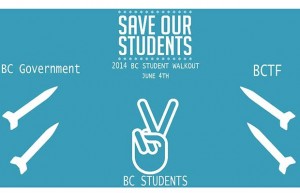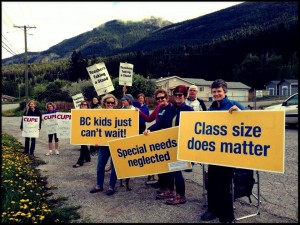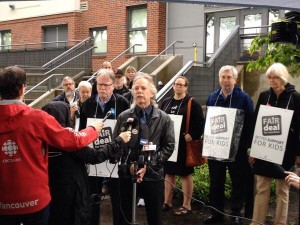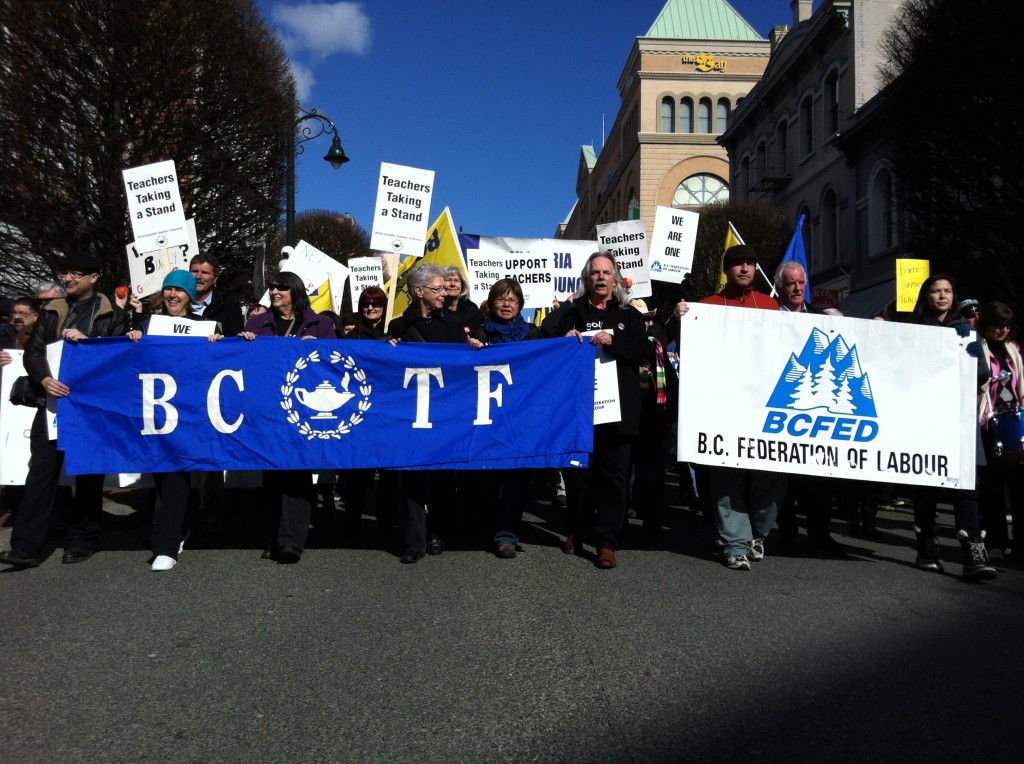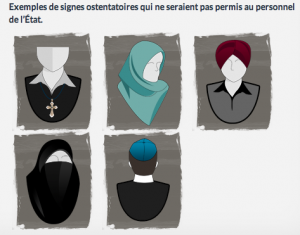Owen Davis, Truthout, August 2, 2013– Brianna stands beside the conductor’s podium in the band hall of Chicago’s Uplift High School. An engrossed audience is packed on the risers. Mirrored sunglasses obscure her expression, and her only sign of nervousness is in the movement of her hands, clasping and unclasping before her.
Brianna was a public school student in New Orleans when Hurricane Katrina hit. In the wake of the flood, whole neighborhoods were destroyed. Approximately 1,300 people had died and hundreds of thousands were yet to return. Amid all this, she had faith her schools would weather the storm.
Instead, she found that her school was one of the many consolidated into charter schools, which draw public funds but are privately managed. Thousands of school employees had been fired (a move later ruled illegal), and many of the replacements were young, lightly trained recruits from Teach for America. By 2007, nearly half of the city’s teachers were in their first three years of teaching. TFA became embedded in the fabric of the district, and one in three New Orleans students can now call a TFA recruit their teacher.
Brianna was vexed by her young new teachers, who were adversarial and fixated on data. “Everything was taken away,” Brianna said. “And then the teachers don’t even care about you.”
Complicating matters, many of the new teachers in the majority-black district were white and unfamiliar with the community. Indeed, the replacement of veteran teachers has decreased by one-third the percentage of black teachers in the district. In the novice classrooms, Brianna saw “a power dynamic type of thing,” in which bald racial hierarchies arose where classroom management failed. The teachers focused less on building relationships, more on “numbers, numbers, numbers.”
The students returned the teachers’ animus. Disciplinary actions spiked. Brianna tells of students being cuffed by police and pulled from classrooms, of classes dwindling and incarceration rising. Today, the Recovery School District boasts an out-of-school suspension rate that’s four times the national average.
Who was this corps of new teachers, so combative in their approach? Why their obsession with numbers? Whence the startling admission, “I’m here for two years, then I’m out”?
Only later would Brianna learn that they were recruited through Teach for America, a nonprofit that places thousands of new teachers in high-needs schools every year. They come armed with five weeks of summer training, committed to two years in the classroom. Founded by Princeton graduate Wendy Kopp in 1989, TFA now has some 28,000 alumni throughout the country.
“Organizing Resistance to Teach for America and its Role in Privatization”
Now, some of those alumni are denouncing the organization. They make up part of the group squeezed into a high school band hall to hear Brianna denounce their ilk. It’s the first time many of them have heard this perspective.
The event, called “Organizing Resistance to Teach for America and its Role in Privatization,” took place during the Free Minds, Free People conference from July 11-14, in Chicago. It aimed “to help attendees identify the resources they have as activists and educators to advocate for real, just reform in their communities.” Namely, resisting TFA.
The summit didn’t drop from the sky fully formed. A group of New Orleans-based parent-activists, former students, non-TFA teachers and TFA alumni collaborated for months to arrange it.
Complementing their critique is a small but growing group of TFA dissidents and apostates who’ve taken their concerns to the press. Even as TFA marches into more and more classrooms throughout the country and world, a burgeoning group of heretics is nailing its theses to the door. But why are they speaking up just now?
Altruist-Turned-Skeptic Gary Rubenstein
When Gary Rubinstein joined TFA in 1991, he was motivated largely by the fact that it was “a big thing to do.” Altruism played a part – “I’m a nice person, I do care,” he says – but the novelty of it enthralled him. It was “partly like going to another country.”
In his case, that great unknown was Houston. At the time, there existed a genuine teacher shortage in Houston, as in other cities. Class sizes were enormous, and students saw strings of long-term substitutes instead of full-time teachers. TFA’s foot soldiers were greeted warmly.
A wry double-major in math and philosophy with a predilection for “David Sedaris-style” writing, Rubinstein assumed his enthusiasm and subject knowledge would translate to successful teaching. Instead, his classes were unruly and his teaching haphazard. He recalls a particular lesson in which he gave students measuring tape and told them “go measure stuff,” only to find them measuring, “let’s just say, parts of their own anatomy.”
Rubinstein found that without classroom management, it didn’t matter “how much you knew or how much you cared about the kids.” So he became a martinet. He considers himself one of the first “no excuses” teachers, subscribing to a brand of unwavering discipline many charter schools now espouse.
He recorded his observations on classroom management (now a book), and decided to put together a guide for incoming corps members he considered underprepared. He asked Wendy Kopp in an elevator for her blessing, which she granted. (They’re no longer on such amicable terms.)
Rubinstein has questioned TFA’s training model, a five-week training course called Institute, for two decades. In 1995, by then a veteran teacher by TFA standards, he began leading a workshop on classroom management, partly an excuse to splash cold water on the faces of the dewy-eyed idealists. “TFA is not giving you the real story,” he’d tell the recruits. “They’re trying to shield you from reality.” He delivered that pep talk for 11 years.
Until relatively recently, Rubinstein’s criticisms were relegated to the training he considers so inadequate, “it’s offensive.” Otherwise, he admired the thrust of TFA’s mission. He even recruited for TFA at his alma mater, Tufts. But after attending the 20-year TFA anniversary summit in 2010, his critique deepened. It wasn’t long before he wrote the blog post that made his name and initiated a genre: “Why I Did TFA, and why you shouldn’t.”
“Scrap the Map” Teacher Activist Jesse Hagopian “Did” Teach for America
It’s not common knowledge that Jesse Hagopian “did” Teach for America. “I don’t always divulge that,” he admits. The TFA badge is notoriously useful in landing jobs at McKinsey and Goldman Sachs, but it lends little cred among activists. Hagopian is of the latter camp.
He’s better known for helping to organize the successful “Scrap the MAP” campaign at Garfield High School, in Seattle, where he teaches history and advises the Black Student Union. With the support of students and parents, the teachers there boycotted the state standardized test, faced down sanctions and eventually secured the right to forgo the test. Hagopian still glows when he talks about it.
He graduated from Macalester College in 2001 after studying radical antiracist theory. “I just spent the last years analyzing these problems,” he remembers thinking. “What do I do with this?”
Hagopian, admittedly “politically unsophisticated” at the time, was attracted by TFA’s social justice language. During his five-week training in the Bronx, though, he quickly surmised that it “wasn’t the emancipatory project” that he’d hoped.
His friend and dorm-mate was a fellow black radical who “began raising all kinds of questions” about race within TFA’s pedagogy. TFA put him on an “improvement plan,” a set of sanctions that requires corps members to complete supplemental work on top of grueling Institute assignments. According to TFA:
In certain instances, a corps member may act in ways that interfere with the learning and progress of students, behaving in such a way as to give rise to concerns that s/he is not demonstrating our core values….
“We saw him as being targeted,” Hagopian says. The plan was “almost impossible to fulfill.” His friend was soon dismissed.
Hagopian soldiered on. “The bigger conversations about the purpose of it get lost,” he said, “because you’re trying to become a teacher in five weeks.”
When he entered a high-poverty school in Washington, D.C., he realized how truly unprepared he was. An innocuous show-and-tell turned into a litany of tragedies as students presented their mementos of male family members who were dead or in jail. Hagopian felt “overwhelming sorrow and panic,” unequipped to heal that grief or to help students grasp “why this happened to their families.”
At the same time, the passage of No Child Left Behind (NCLB) illuminated TFA’s politics. He saw TFA “fall in lockstep” with NCLB, especially its reliance on standardized testing and the sanctions it forced on “failing schools.” Hagopian taught in a school reconstituted under NCLB guidelines. Its staff had been laid off and replaced. The new faculty might have been fresh-faced, but they were dreadfully unfamiliar with the community and its needs. TFA provided no means to address this gap; it had far more to say about data and assessments than race and inequality.
Hagopian puts it in stark terms: “there was nothing on standardized tests about how to end mass incarceration.”
Over the years, he cultivated a full critique of TFA, conveyed in part in his 2010 Seattle Times op-ed agitating against bringing TFA to Seattle. He feels that TFA “fits very nicely into an overall strategy” of privatizing education and diminishing critical thinking. Meanwhile, the organization glosses over intractable issues of race and inequality at the heart of American educational system.
Read More: Truthout

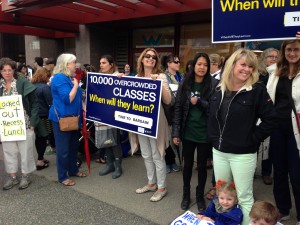
 Follow
Follow
